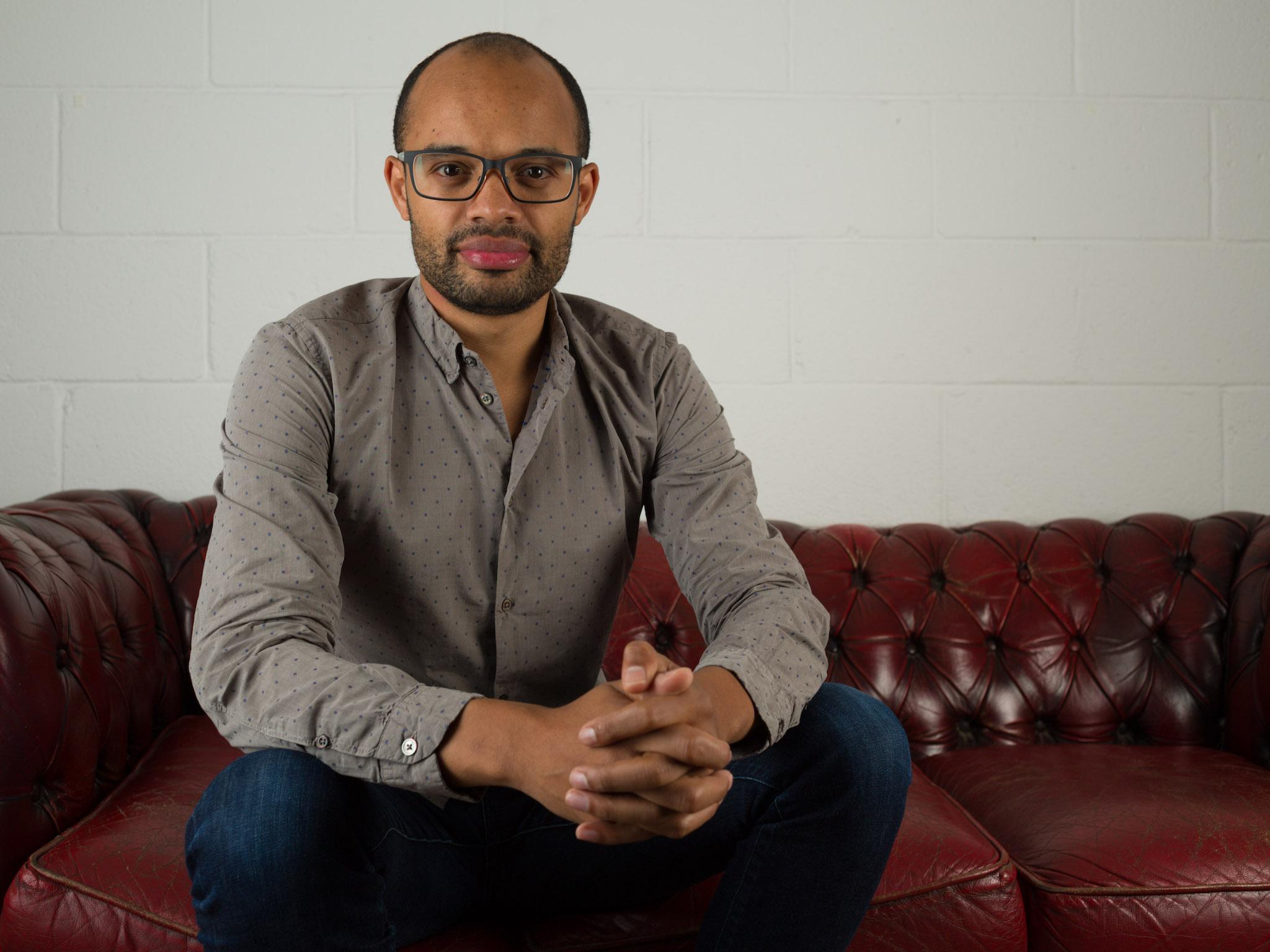Metail: the retail startup that enables consumers to try on clothes digitally
Metail transforms online shopping by allowing consumers to assemble outfits out of a retailer’s digital stock

It’s one week to go until Tom Adeyoola’s paternity leave and he is adamant he’ll be able to handle babycare and running a business at the same time. “I’ll still be working Fridays and Tuesdays, and answering emails between 1pm and 3pm when the baby goes down for a nap,” he says, with the cheery optimism of a man who has juggled everything in his life around one all consuming mission for the last ten years.
Adeyoola is the founder of Metail, a tech startup that set out with the simple premise of finding a way for consumers to try on clothes online. A decade later, the company has raised £22.5m, filed nine patents and has another 20 in the works – but is still yet to turn a profit. You won’t find it on the websites of high street fashion retailers, either.
“In the world of startups that is considered long in the tooth,” Adeyoola says. “But we have been trying to solve a difficult problem – you need the right people for the right amount of time. Also, people in the competitive space are way behind and we have had to wait for the market to catch up.”
But Metail’s time may finally be here. This year, Amazon became the biggest retailer of clothes in the US. It now captures 55 per cent of all product search online. Among shoppers aged 17-34, Amazon has twice the market share of the next biggest online clothing retailer, Nordstrom.
That sudden dominance of online shopping has high street retailers scared that consumers are on the brink of quitting the high street. Online stores can offer the same information about products and increasingly shorter delivery times for orders. But there is one area in which, with current technology, they cannot compete: trying on clothes.
That’s where Metail comes in. “Metail digitises garments to help a virtual sale,” Adeyoola explains. To the consumer, the software looks a bit like Cher’s closet in the cult Nineties movie ‘Clueless’. It transforms online shopping by allowing consumers to assemble outfits out of a retailer’s digital stock. But instead of dressing a size six mannequin, the buyer can customise the model to their own proportions by putting in their height, weight and bust.
Seeing how dream outfits really fit on their body type might not please customers, who shop based on aspirations. But it can make online shopping a less daunting experience, cut the number of returns for retailers and reduce waste in the industry as manufacturers get a better idea of what styles and sizes consumers actually want.
Metail uses customer data like Netflix to offer buyers a curated experience based on someone’s preferences. It can suggest items similar to the ones the shopper has already bought, or items favoured by other customers of a similar build and background. Rather than going to Asos and clicking through 2,000 dresses on a size six model, a Metail user might initially see the 200 outfits that an algorithm shows are most likely to suit them, on a digital avatar that matches their shape.
Adeyoola, with the characteristic vision that has kept his dream alive through ten years of software development, can imagine a future where clothes are not manufactured until they are ordered and can be produced to the exact specifications of the buyer. Amazon is already doing it with books, he says, reducing the space needed to store products and the amount of wasted paper from printing unsold books.
Half of the inspiration for Metail came to Adeyoola when he was on holiday with his wife in Vietnam. They solved her headache finding suitable clothes online by getting tailored outfits. Adeyoola had been working on creating futuristic gambling software. He had come across a computer software engineer called Professor Roberto Cipolla who told him it would be possible to create a live blackjack game by using computer recognition software. Adeyoola began to wonder if that same software could be combined with the real problem of clothes sizing for women.
He took the problem to Duncan Robertson, a former PhD student under Professor Cipolla who had helped him solve his gambling conundrum. Together the two of them set out to make software that could digitise images of clothing rapidly and cheaply enough for retailers to want to use the service.
Only it wasn’t as simple as it sounds. When the company was founded in 2008, it cost between £300 and £400 to digitise a single garment. The process was so expensive, brands would only do it as a marketing trick. Adeyoola says that from day one, he set out to make it at least 100 times cheaper for retailers so they would see it as a viable tool. “That bit of the digisation is the unsexy bit, but it’s what’s we have spent so much of our time on,” he says. “We are effectively creating the MP3 that allowed Apple to make the iPod.” Without the digitisation software, there was no way for consumers to try on lots of clothes that they don’t own, really fast.
Adeyoola started out with no money, but managed to raise £60,000 from family and friends to get the project off the ground. An angel round followed, and by 2012 Metail had a brand name and a product that was adopted by Tesco clothing brand Florence + Fred and later by Warehouse. Metail looked like it might be taking off.
But these were the beginnings of tough times for retail. Adeyoola says progress was stymied by shrinking teams and cost savings at the brands they were working with: “This was a trend that we were starting to see - that the UK was focussed on cost reduction and not really on progressive consumer development.”
At the same time, Metail was starting to get noticed by Asian investors who saw its potential. Those relationships are still going strong: Metail’s latest round of funding was led by TAL, a Hong Kong based manufacturer, in July this year. It brought in £10m on top of the initial £12.5m raised by Adeyoola. Spending some time developing the product overseas has been beneficial for Metail, Adeyoola says: “Now, when we approach UK retailers we say we can save them money from day from day one while we hand hold them into the future.”
It may soon be in those retailer’s interests to pay attention – especially as Adeyoola has the cost of digitising a product down to around £7, with the dream £3 figure in sight. As internet shopping becomes more sophisticated, it is putting bricks and mortar stores out of business. Around 900 stores disappeared from UK town centres in 2016 alone, according to research commissioned by the Local Data Company.
“Shopping needs to become a brand experience,” Adeyoola says. “Apple came up with a store experience 12 years ago with social sales people picked for their ability to do small talk, tablets so they can transact anywhere in the store, places for seminars to teach consumers about new products and a genius bar to solve technical issues. Why don’t all retailers have this?”
In Adeyoola’s brave new world, retailers won’t need changing rooms. Consumers will already have tried everything on online.
Subscribe to Independent Premium to bookmark this article
Want to bookmark your favourite articles and stories to read or reference later? Start your Independent Premium subscription today.




Join our commenting forum
Join thought-provoking conversations, follow other Independent readers and see their replies
Comments